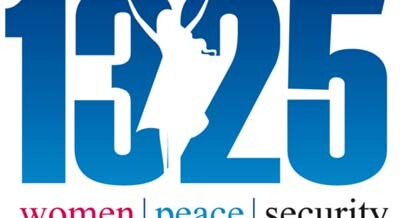
Guest Blog by Beth Woroniuk, June 27, 2016
Prime Minister Justin Trudeau’s declaration that he is a feminist, made while at a UN conference in March, attracted media coverage around the world. However, we have yet to see what a feminist prime minister means for Canadian foreign policy in general and how Canada approaches peace and security issues in particular.
The early indications are mixed.
The government’s decision to go ahead with selling military vehicles to Saudi Arabia does not bode well, given the Saudi government’s terrible record on women’s rights and human rights in general. Sweden, the leader to date in defining feminist foreign policy, opted for a more forthright approach when faced with a similar situation.
There are few clues in the mandate letters for the Ministers of Foreign Affairs and of International Development, which provide them with no direction to strengthen Canada’s global commitments to gender equality. They contain only one isolated reference to women’s rights, alongside with the rights of refugees.
Yet there are other, more positive, signs. The fact that the first study of the House of Commons Standing Committee on Foreign Affairs and International Development is on the issue of women, peace and security is encouraging. The study was prompted by a motion by the NDP’s Hélène Laverdière; however, the majority Liberals did agree.
Around the same time as last year’s federal election, the global community marked the 15th anniversary of United Nations Security Council Resolution (UNSCR) 1325. This resolution, passed in 2000, is widely hailed as a watershed even though its wording requires little of member states. Seven additional resolutions have followed, collectively known as the ‘women, peace and security agenda.’ This agenda is based on the insight that there is a clear connection between the security of women and the security of states. Proponents point to the growing body of research that highlights the importance of bringing a gender perspective to the centre of peace and security approaches and policymaking. Strengthening women’s participation in peacebuilding (including peace negotiations, post-conflict decision-making and conflict prevention), refocusing attention on conflict prevention, and addressing conflict-related sexual violence are all key elements of this agenda.
How Canada deals with this agenda is a litmus test of how seriously Canada is investing in a feminist foreign policy.
Canada did have a National Action Plan on Women, Peace and Security. Adopted under the Conservative government in 2010 (spurred, say the cynics, by Canada’s ill-fated run for a seat on the Security Council). This plan, which expired at the end of March, had been plagued by a low profile, unclear status, lack of dedicated budget, delayed public reporting and confusing indicators. Although Canada did make investments in specific initiatives, it is unclear if or how the plan influenced central foreign policy directions, such as Canada’s approach to the conflict in Ukraine, addressing ISIL or supporting peacebuilding initiatives in Sub-Saharan Africa or Colombia.
The Liberal government has committed to renew the plan, but future directions and investments are yet to be defined. Earlier this year, the Department of National Defence announced a directive for integrating UNSCR 1325 into Canadian Armed Forces planning and operations. More recently, the Canadian government’s International Assistance Review calls for input on ‘how to apply a feminist lens throughout all of Canada’s international assistance activities.’
Where will Canada go from here? There are many opportunities and, in particular, a natural fit with the Liberals’ promise to re-engage with the United Nations system generally and with peace operations more specifically. The interest in feminist foreign policy provides a valuable jumping off point.
Yet, proponents of the women, peace and security agenda argue that a feminist foreign policy requires much more than token gestures. It’s more than adding women to existing structures. It’s not just about sending more female peacekeepers. It’s more than nice words during UN debates. Rather, it’s about shifting how we understand security and bringing women peacebuilders and gender perspectives to the centre of conflict prevention and response – something the security sector (and conflict studies) have so far strongly resisted.
Many questions remain. When faced with difficult choices, will the government take the well-travelled road of least resistance (token words, few resources, a marginalized national action plan), as with the Saudi arms deal? Or will it forge a brave, perhaps messy and certainly difficult path of actually applying a feminist approach to how we understand security and build peace?
Beth Woroniuk is the Coordinator of the Women, Peace and Security Network-Canada and an Ottawa-based consultant on gender equality and women’s rights. The views expressed do not necessarily reflect those of all members of the WPSN-C.
